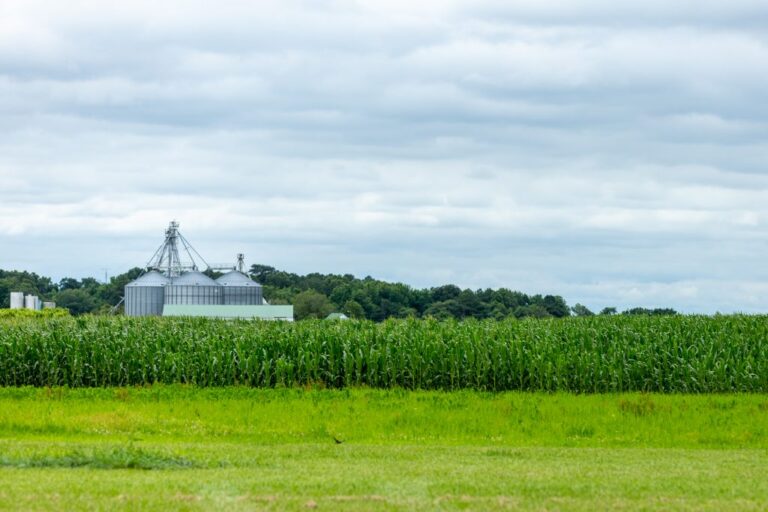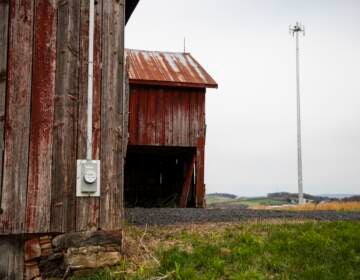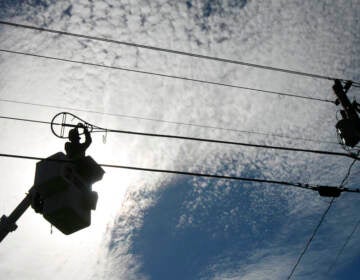Coronavirus pandemic, virtual school expose rural Delaware’s broadband deficiency
The state will spend $20 million to provide accessible and affordable internet to those who can’t connect now to virtual classes and services.

T.S. Smith & Sons farm in Bridgeville, Delaware. (Courtesy of the Delaware Department of Agriculture)
With the coronavirus pandemic, access to the internet has become more essential than ever. People living in parts of rural Delaware where internet access is spotty are at risk of missing out on online classes for their children, as well as web-based health care and other benefits of technology.
“At this stage in 2020, broadband is essential. It’s as essential as any other public utility, like water and electric,” said James Collins, Delaware’s chief information officer. “We still have, as identified in our action plan, broadband deserts in our state that we’ve been working relentlessly to eliminate.”
The lack of access really showed up in the Woodbridge School District in southwestern Sussex County, as students transitioned earlier this year to all-virtual schooling.
“Nearly 30% of our families could not access the internet, or had really poor connectivity,” said Elyse Baerga, the district’s supervisor of student services. “We had teachers struggling to provide instructions from home who couldn’t access it, students who we couldn’t reach, and we had to be really creative in a challenging situation that seemed almost insurmountable.”
The Woodbridge district covers the backbone of Delaware’s agriculture industry, with more acres of arable land under cultivation than anywhere else in the state, according to Sussex County officials. All that farmland means homes are far from one another, making it more costly for communications companies to build fiber line connections to get those families online.
On Monday, Gov. John Carney said the state was accelerating its efforts to incentivize companies to make those connections.
“Over the last two years, Delaware has worked to eliminate internet deserts and make high-speed internet a reality for all Delawareans,” Carney said. “These funds will help us build additional broadband infrastructure, identify areas where we need to improve internet speeds, and eliminate barriers so that Delaware families can have quality internet.”
The state will use $20 million from federal CARES Act funding to complete, four months ahead of schedule, 15 towers that will beam a broadband signal to homes. The state’s Rural Wireless Broadband Initiative will provide service to 1,500 residents, with the potential for expansion.
“It’s very expensive to run fiber to a resident,” Collins said. That cost tops $20,000 per mile in some locations. “The best strategy for rural areas is a wireless strategy.”
Rural residents can sign up for access through service provider Bloosurf for $60 or $80 depending on the size of their families. Discounts are also available for low-income residents.
“We’re going to purchase broadband services in bulk for low-income families,” Collins said. The state will provide vouchers to families identified with help from the Department of Social Services and the school districts.
As students in Woodbridge and other districts prepare to return for either all online schooling or a hybrid of online and in-person learning, staying connected is considered a vital part of a student’s success.
To determine how much more work needs to be done to improve connectivity and internet speeds, the state will also conduct a survey of connection speeds that will inform where improvements can be made.
WHYY is your source for fact-based, in-depth journalism and information. As a nonprofit organization, we rely on financial support from readers like you. Please give today.




![CoronavirusPandemic_1024x512[1]](https://whyy.org/wp-content/uploads/2020/03/CoronavirusPandemic_1024x5121-300x150.jpg)


